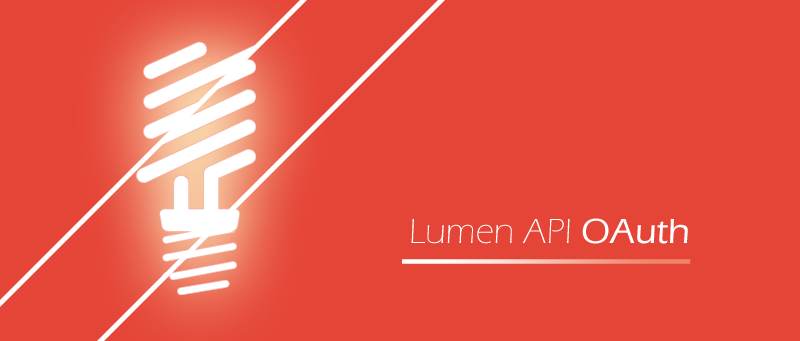Download the PHP package omarelgabry/lumen-api-oauth without Composer
On this page you can find all versions of the php package omarelgabry/lumen-api-oauth. It is possible to download/install these versions without Composer. Possible dependencies are resolved automatically.
Download omarelgabry/lumen-api-oauth
More information about omarelgabry/lumen-api-oauth
Files in omarelgabry/lumen-api-oauth
Package lumen-api-oauth
Short Description A RESTful API based on Lumen micro-framework with OAuth2.
License MIT
Homepage https://github.com/OmarElGabry/lumen-api-oauth
Informations about the package lumen-api-oauth

Lumen API OAuth
A RESTful API based on Lumen micro-framework with OAuth2. Lumen API OAuth is a simple application, indented for small projects, helps to understand creating RESTful APIs with Lumen and OAuth2, know how to authenticate and authorize, and more.
The RESTful API for Posts and Comments, where Users can view, create, update, and delete. It provides authorization mechanism to authorize against access tokens using OAuth2, ownership, and non-admin Vs admin users.
:mega: A full tutorial on building a RESTful API with Lumen and OAuth2 can be found on Medium.
Index
- Installation
- Terminology
- Authorization
- Routing
- Support
- Contribute
- Dependencies
- License
Installation
Steps:
-
Run Composer
-
Laravel Homestead
If you are using Laravel Homestead, then follow the Installation Guide.
-
WAMP, LAMP, MAMP, XAMP Server
If you are using any of WAMP, LAMP, MAMP, XAMP Servers, then don't forget to create a database, probably a MySQL database.
-
Configure the file
Rename file to , set your application key to a random string with 32 characters long, edit database name, database username, and database password if needed.
- Finally, Run Migrations and Seed the database with fake data.
Terminology
There are some terminologies that will be used on the meaning of the terms used by OAuth 2.0. If you need a refresher, then check this out.
Authorization
Authorization comes in two layers. The first layer authorize against the access token, and the second one is for checking against ownership, and non-admin Vs admin users.
By default, user can delete or update a post or a comment only if he is the owner. Admins are authorized to view, create, update or delete anything.
Access Tokens
The application implements Resource owner credentials grant, which essentially requires the client to submit 5 fields: , , , , and .
The authorization server will then issue access tokens to the client after successfully authenticating the client credentials and presenting authorization grant(user credentials).
In , A route has been defined for requesting an access token.
Ownership, & non-Admin Vs Admin Users
Now, after validating the access token, we can extend the authorization layers and check if the current user is owner of the requested resource(i.e. post or comment), or is admin. So, How does it work?
Assign Middleware to controller
Order
Please note that the middlewares has to be applied in a certain order. The has to be added before the Middleware.
Override isAuthorized() method
In , Abilities are defined using facade.
Routing
These are some of the routes defined in . You can test the API using Postman
| HTTP Method | Path | Action | Fields |
|---|---|---|---|
| GET | /users | index | |
| POST | /oauth/access_token | username, password, client_id, client_secret, and grant_type. The field is the in table. The field is secret. The & fields are id0 & secret0, or id1 & secret1, ...etc respectively. The field is password. |
|
| POST | /posts | store | access_token, title, content |
| PUT | /posts/{post_id} | update | access_token, title, content |
| DELETE | /posts/{post_id} | destroy | access_token |
Support
I've written this script in my free time during my studies. This is for free, unpaid. If you find it useful, please support the project by spreading the word.
Contribute
Contribute by creating new issues, sending pull requests on Github or you can send an email at: [email protected]
Dependencies
License
Built under MIT license.
All versions of lumen-api-oauth with dependencies
laravel/lumen-framework Version 5.2.*
vlucas/phpdotenv Version ~2.2
laravel/homestead Version ^3.0
lucadegasperi/oauth2-server-laravel Version ^5.1




